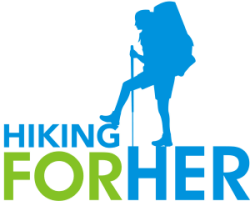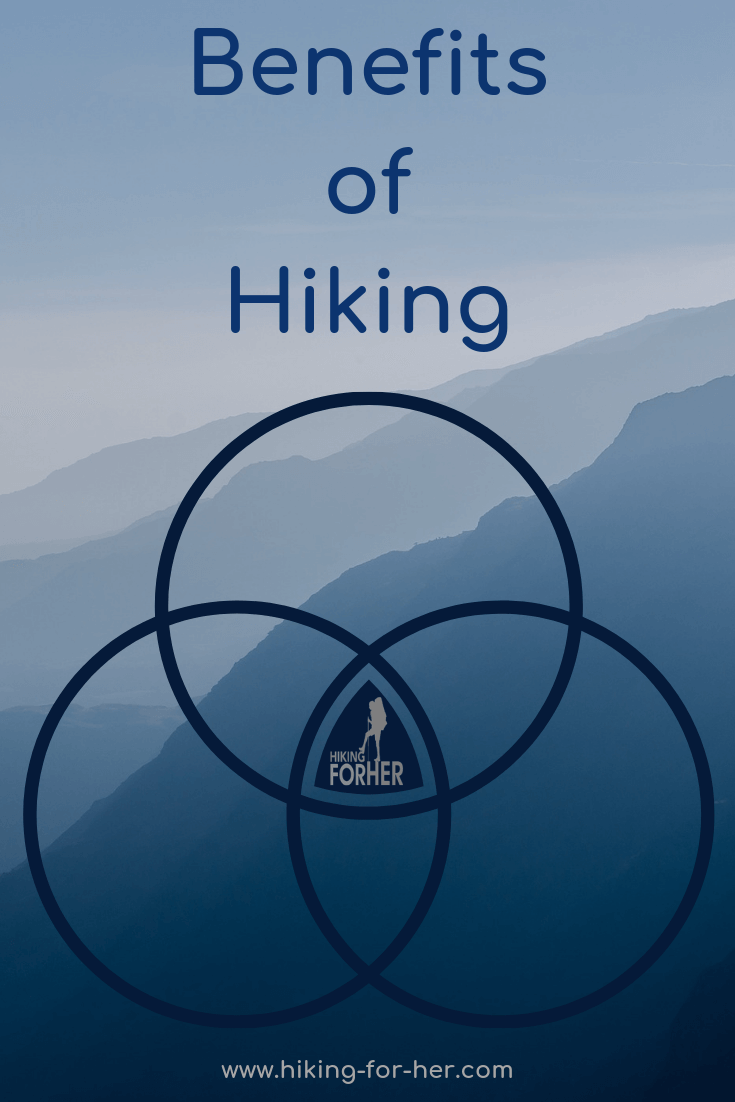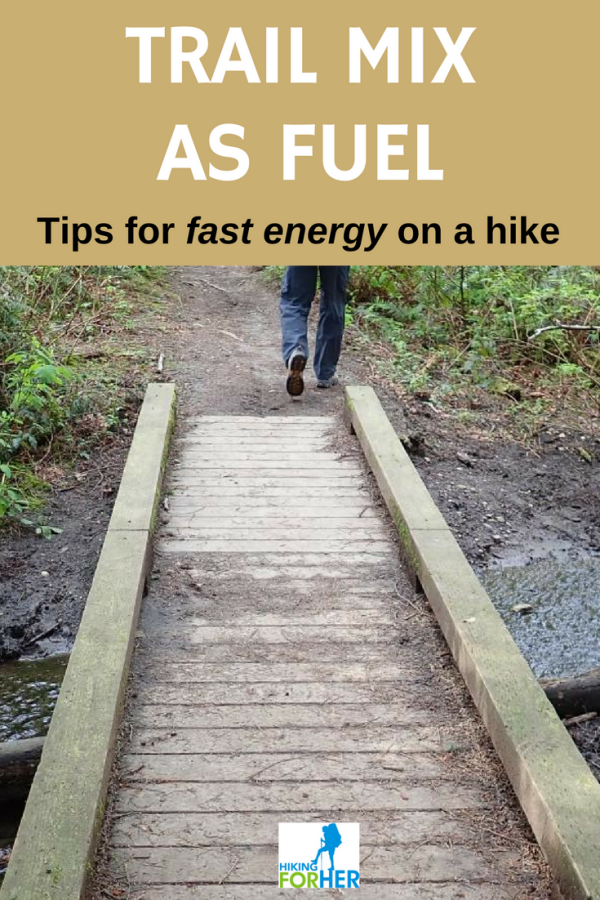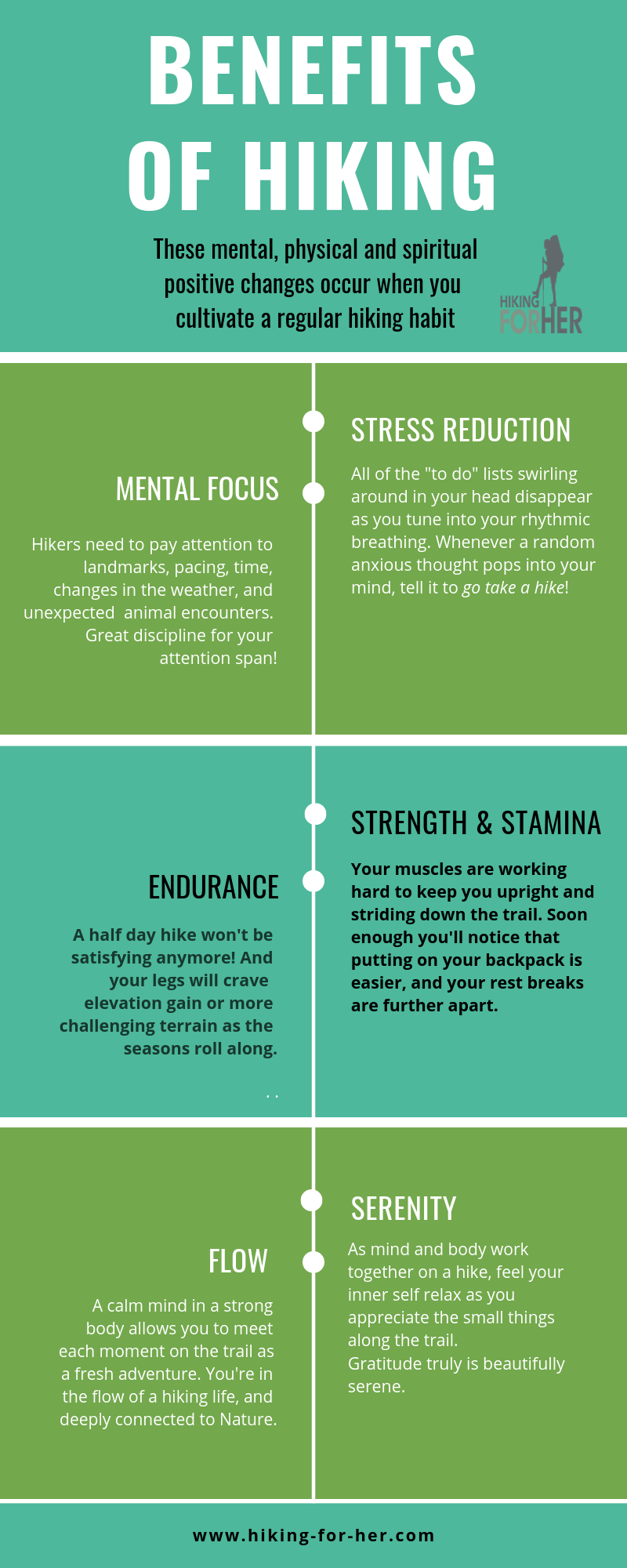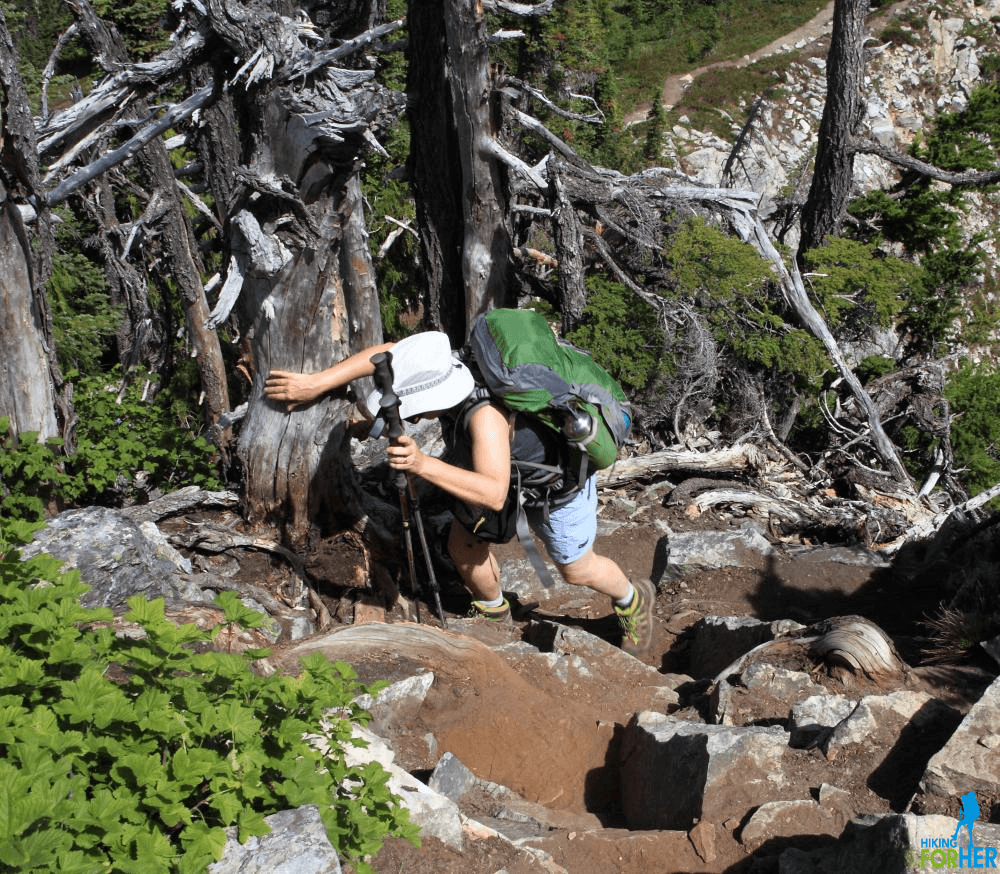Benefits Of Hiking
For Increased Health And Wellness
By Diane Spicer
You might already be a bit familiar with some of the health benefits of hiking: physical strength, for example.
Other things that might come to mind: insect bites, scrapes and bruises, dehydration, dusty boots and sore muscles.
But there are huge upsides to hiking, beyond increased physical strength.
Here's a detailed overview of them, plus links to more information about why you just might want to cultivate a hiking habit for life.
Want to get to the good stuff fast?
But first, a question for you
Can you relate to this feeling?
Listing the benefits of hiking might seem a little weird.
Why?
- The benefits are a side effect of hiking, not the prime or main motivator.
Here's the truth.
Hikers hike because we must.
It's hardwired into our bodies.
- Our desire to get tired, dusty, wet, muddy, cold, sore, and dehydrated, just so we can see what's around the next bend in the trail, defines us as hikers.
There is absolutely no rational way to explain the benefits of hiking to a non-hiker by calling them a secondary effect.
Or even ourselves, sometimes (after a cold, muddy day outdoors, perhaps).
If you're starting out as a hiker, you'll see how it unfolds for you over time.
Let's try to explain this hiking phenomenon
I've been on the trail for 50+ years, so I can offer some unique insight into the beneficial side effects of the hiking habit.
So if you count yourself among the individuals who don't hit the trail, yet are curious about the benefits of hiking, welcome!
- Benefits of walking and trekking and tramping, too
And if you're already a hiker, you're gonna love putting a check mark in front of all of these benefits your mind and body receives on each and every hike!
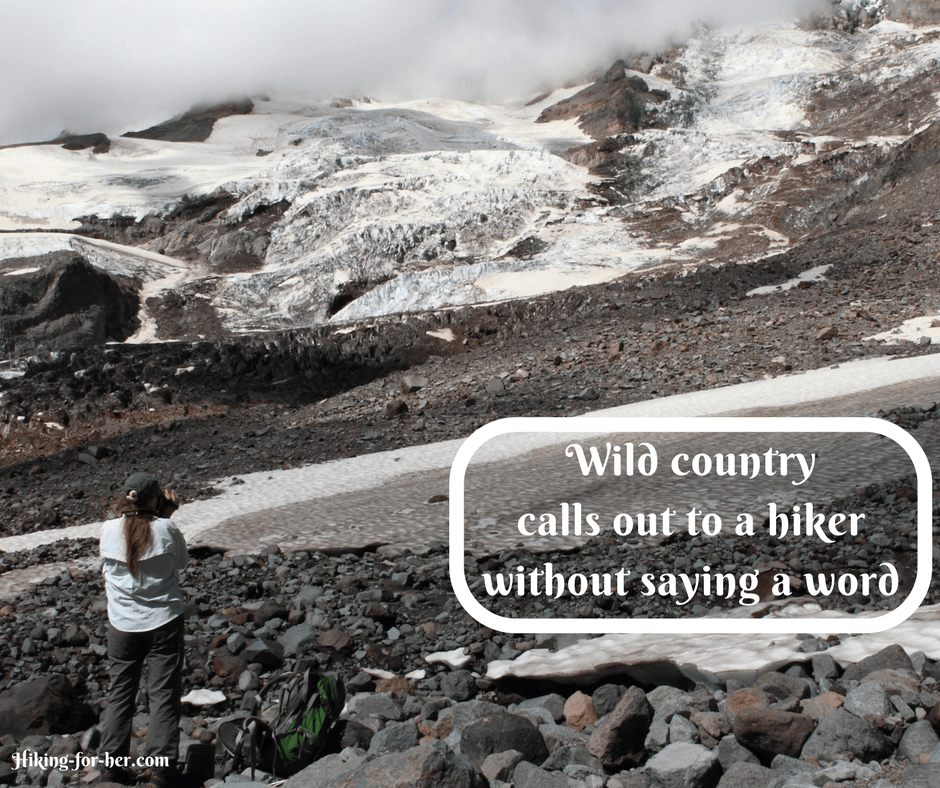
Benefits of hiking: a mighty triad
There are many types of hikers, and all of us keep hiking for our own personal reasons.
Most of us would agree that there are definite advantages to being a hiker, so let's go ahead and call those the benefits of the trail.
And let's split those bountiful benefits of hiking into three big chunks for purposes of discussion, although they occur simultaneously:
And let's get on the same page here.
Wait, we're both on the same page already.
Alrighty then, let's get even more on the same page with this disclaimer:
- Our discussion of benefits pertains to regular hiking, at least several times per month and preferably a few times each week. Find more types of hiking here.
- Otherwise, you'll reap sub optimal benefits, or may even watch them slip away (more on that in a moment).
Use these 3 categories of benefits
for yourself and your loved ones
A sedentary lifestyle sets you up for trouble, but you, smart hiker that you are, cash in on the following benefits of regular physical activity!
You can also use these 3 categories of the benefits of hiking as good evidence for enticing the unbelievers onto the nearest trail with you.
- Here's a quick answer to the Why hike? question
Time for a closer look at those benefits!
Obvious benefits of hiking:
physical rewards
Your body is your hiking vehicle.
It powers you up and down the trail and even carries your backpack for you.
But you might not even realize what a great workout hiking is because you're having too darned much fun getting where you're going.
- Walking is considered a low impact sport, from the perspective of your weight bearing joints but it's also classified as an endurance sport.
For a succinct list of the health benefits of hiking, read the American Hiking Society's fact sheet, available as a free pdf.
- The sheet also includes links to research findings.
And if you can find a medical practitioner who will write you a nature prescription (medical advice to include hiking regularly in your life), give her a hug and share your photos of your hikes with her!
Increased strength is one of the first benefits
of hiking that you'll notice
Muscular strength, that is.
Consider your heart (cardiac) muscle as the most important part of your hiking engine, and know that a vigorous hike gives it a great workout.
- Increased cardiovascular performance is your lasting reward.
Consider your hikes as monthly contributions in the "strength" column of your "hiking IRA".
- You'll be glad you contributed when you're an older hiker enjoying the benefits of a strong heart!
Also consider your skeletal muscles, especially the large groups on the front and back of the legs and torso, as keys to improved strength.
You will notice that lifting your backpack after a snack break becomes less effort.
Your back will accept your filled backpack without complaint, even when you throw in an extra water bottle.
You'll crave longer, harder hikes with agility and balance tests like blown down trees or stream crossings.
Improvements in your core strength come with the hiking territory!
And let's give a nod to enhanced bone strength, too.
- Weight bearing exercise preserves and strengthens the bone mass you already have: strong hiking bone info here.
- Read HFH's take on hiking with osteoarthritis.
More stamina
Asking your muscles to contract over and over again, hour after hour on a hike, trains them to accept the challenge without screaming for a break every few minutes.
You might have observed how your first few hikes of the season seem creaky and tenuous, compared with the end of the season when you're in top form.
Regular hikes train your muscles, and give them regular workouts.
- Think of it like walking a pack of dogs: you're having fun getting outdoors, and the dogs get some exercise under your supervision.
To get into peak condition, take high elevation (peak) hikes whenever possible.
Or choose hiking vacation destinations with lots of elevation gain and loss, like hiking at Mount Rainier National Park:
- Mt. Rainier day hikes (trail description, insider tips, and video)
Flexibility
Try this fun little observation on yourself.
On
a regular day at home or work, give yourself a tick mark on a notepad
with your favorite pen every time you bend over, stretch, squat or
otherwise engage your muscles in a big movement.
On your next hike, do the same.
Compare the numbers.
Use it or lose it!
Tip:
Wear an activity tracker or monitor and set it to remind yourself to move every hour. Such a great way to get up out of that chair and take your dogs for a walk, so to speak.
Increased bone density
Your bones are connected to your muscles to allow movement.
Every time you take a step on the hiking trail, you stress the muscle attachments just a little bit.
That gives the bones some feedback: get denser, or at least hold on to what you have in terms of minerals and bone structure.
So give your musculoskeletal system lots to work with, by varying the types of trails you use: a steep trail yields more feedback!
Blow through those calories
Fact: Calories are food energy (fuel) that your body needs for mental alertness and physical stamina on the trail.
Fact: Hikers can burn whopping amounts of calories compared with other forms of outdoor exercise.
Fact: The amount burned depends on your age, gender, weight and choice of hike.
Fact: Calories are your friends on a hike! Don't be miserly with them in your food sack.
Trail tip: Let your hunger level drive your intake of calories.
If you're hungry, eat.
The tremendous amount of calories you burn on a vigorous or lengthy hike is one of the loveliest benefits of hiking.
It might take some effort to overcome your social conditioning about portions and frequency of snacks.
You have now received Hiking For Her's permission to have that second sandwich if your stomach is still growling!
Here's how to be smart about selecting the right calories for a hike:
Decreased stress is
one of the most important benefits of hiking
A hormone called cortisol is associated with human stress levels.
In fact, it's tagged as "the stress hormone".
Short term, that's important for helping you react appropriately to danger: spotting a bear on the trail, for instance.
- Once the bear moves on, your cortisol levels drop to baseline.
But when you're stewing and frustrated about something day after day, your cortisol levels remain elevated without returning to a lower level.
- Long term consequences on your body are not pretty (read more here from Mayo Clinic).
It's been noted that outdoor time in nature can reduce feelings of being anxious, angry or frightened, and thus reduce the stress hormone levels.
In fact, researcher used salivary cortisol levels as an easy to collect measurement of the effects of having access to green spaces on stress levels.
Read one such study by Thompson et al in the journal Landscape and Urban Planning:
The flip side
Yes, you will reap tremendous benefits from hiking.
Yes, you will also feel stiff and sore and may risk an injury if you're not conditioned properly.
But you can feel better after a hike more quickly with some basic self care and hiking recovery strategies.
Your hard working hiking muscles deserve some time and attention at the end of a hike, using these tips:
To avoid trouble, use these Hiking For Her resources:
- sore feet after hiking
- achy back
- stiff and sore knees
- benefits of stretching
- injury prevention
- hiking with arthritis
Trail tip:
Always allow yourself time to recover from a tough hike.
Your muscle fibers need to rebuild and repair so you can meet your next hike with a smile on your face and plenty of gas in the tank.
Recovery strategies:
Now that we've covered some obvious territory, let's switch our attention to the willpower and control center of our hiking body.
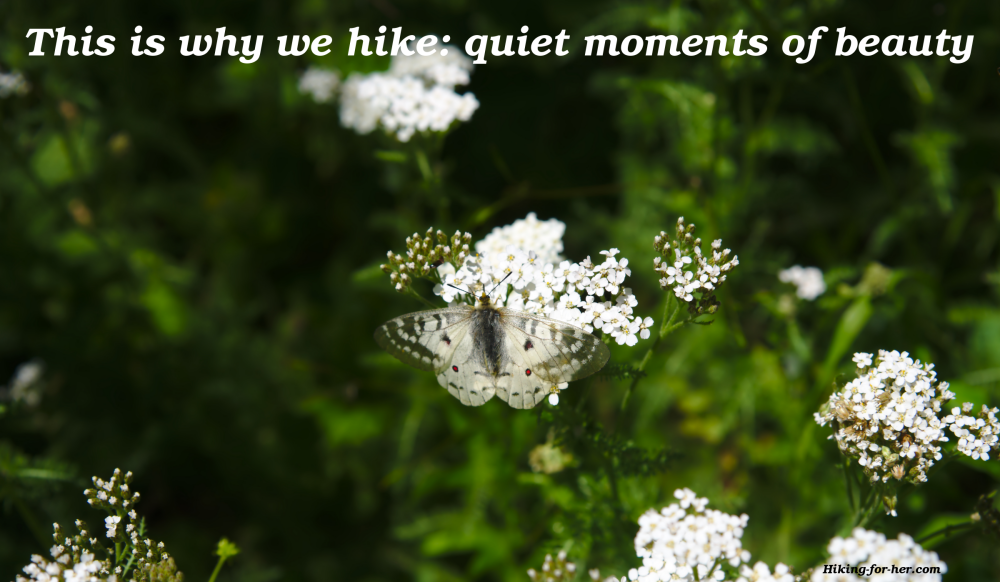
Benefits of hiking:
mental well being as a hiker
We'll begin with the "glass half full" story first.
Hiking makes you smarter
Think that's an exaggeration?
Spend of few moments looking at the eight ways your brain gets a boost from your hiking habit.
There's plenty of good stuff on that list.
Stress, go take a hike
One of the best side effects of hiking regularly is the ability to channel stress into a productive physical outlet.
Next time you're really steamed at someone, or stressing out about an upcoming event, take a hike.
Seriously!
Make time for yourself, and fit in a hike before you blow a gasket.
Need emergency measures?
Even a 15 minute walk around a parking lot, swinging your arms for all they're worth and breathing deeply, will put you in a much better head space so you make it to another day (hike).
Your concentration and attention to detail will be restored, making you much more effective than you were 15 minutes before.
Okay, here's the truth of modern living:
Sometimes you have to forget quantity ("but it's not a real hike unless it lasts for hours") and focus on quality ("I feel better after a quick stroll".)
- Fast mental restoration costs you nothing but time and a few calories when you feel depleted, stretched tight, or a bit blue.
- It's also a fun way to erase mental fatigue brought on by intense mental focus during long bouts of studying or working.
Let's get real about hiking
All is not sunshine and roses on the hiking trail of life.
- You probably shouldn't be hiking through roses anyway. Ouch!
So let's not sugar coat this discussion of the benefits of hiking.
Hiking is not a cure all for life's upsets and challenges.
If fact, sometimes hiking can be challenging.
But you have a secret weapon: your mind power.
You will have days when you just don't want to take another step forward.
- Mind over matter time!
Or you'll reach your destination and just want to lounge around in the sunshine, napping like a lioness, instead of heading back to the trailhead in plenty of time before nightfall.
- Mental discipline time! (and maybe a headlamp)
You might also run into a trail that whips your butt, leaving you feeling defeated.
You'll begin showering yourself in negative self talk and ugly name calling.
- When words like "stupid, wimpy, weak, fat, slow, clumsy, or pathetic" float to the surface of your mind, you know that the trail is getting the upper hand.
That's the perfect opportunity to cherish an important insight about hiking.
Build your mental stamina
Don't walk away from the trails that challenge you.
Instead, prepare mentally to take them on, and use your super computer inside your skull to formulate a plan of attack.
- After you build a solid foundation of physical conditioning and outdoor safety skills, of course.
Here are a few trail tricks (learned the hard way from my own days of feeling slow and stupid) that might get you ready for a hike that you know will push your buttons:
- Study your route carefully before you leave for the trailhead. Plan how to pace yourself appropriately so you can time your rest breaks strategically.
- Remember that a fast start on the trail, at a "hair on fire" pace, will come back to haunt you later in the day.
- Learn that needing to slow down indicates that you need food, water and a mental pep talk. Make time for these before you give up.
- Ask for the support of your trail buddies when you're facing a challenge. A few friendly words of sincere encouragement might make the difference.
- Own this truth: Quitting does not make you a quitter. The trail will wait patiently so you can come back for another, more triumphant, attempt.
There are some physical supportive efforts you can make as well when you choose a tough (for you) trail:
- Eat like it's game day, because it is: hiking food ideas here.
- Drink every 50 minutes, "thirsty" or not: here's why.
- Make sure you have the right trail footwear and backpack.
- Use trekking poles for balance and stability.
At the literal end of the day, take 5 minutes to reflect on exactly why you felt defeated, exhausted, or drained.
There's learning to be had, and you want that insight so you can be stronger next time!
- If competition motivates you, realize that you're competing with yourself for your hiking personal best.
- Honing in on what needs improvement helps you achieve those goals more quickly.
Improvement in outlook on life
Spending time outdoors, combined with repetitive physical movement, delivers the benefits of hiking which we've just discussed.
But let's go further.
Outdoor time has been shown to have a direct correlation to mood, energy levels, and the presence of positive emotions to replace anxiety or depression.
As a regular hiker, I'm sure you've noticed how you come back to "civilization" feeling more calm and centered, more light hearted, ready (if not able) to laugh in the face of adversity.
So harness those benefits for yourself!
And share them.
Example: If you have a teen who is struggling, take them hiking.
Ditto for other family members or friends, as long as they are physically able to hike.
They may protest and drag their heels (perhaps literally), but do what you can to persuade them to give it a try.
- Game this attempt in your favor: choose an appropriate hike to a welcoming destination, and bring great stuff to eat!
Nature therapy is a real thing, and you can read more here.
Making a mental connection
to Nature during childhood
Depriving kids of time spent in nature has some sobering ramifications.
These developing humans are denied the chance to test their muscle strength, won't perfect their balance and coordination, or learn the extent and wonders of their physical and mental powers.
Nature deprivation has been connected with these negative consequences for growing kids:
- Too much screen time skews their attention span, alters the perception of reality, and deadens the senses when they do venture outdoors.
- Sitting in isolation, staring at those screens, robs them of time to make connections with people, trees, animals and the seasons.
- Existing in "too clean" indoor spaces deprives their immune systems from learning the ins and outs of pathogens found in good old fashioned dirt.
- An indoor sedentary lifestyle and obesity are both on the rise in younger folks.
And think of the consequence on our precious hiking trails and public outdoor spaces.
They are going to miss out on this generation's attention and devotion to preservation and maintenance.
- You don't work to support, save and enjoy what you don't love, right?
- The benefits of hiking spill over into the next generation, and beyond.
Kids who are having trouble coping with school might really enjoy a hike with you, and enjoy the benefits of hiking!
- Creativity, sleep cycles, mood and behavior can be enhanced by regular outdoor time.
- It's a great chance to learn what hunger and satiety feels like, coupled with the satisfaction of physical exercise.
- Deriving enjoyment outdoors refocuses the mind away from overeating and "boredom".
- Taking a hike is unstructured, unscripted mental time for day dreaming, observation, and conversation. Time to just be a kid!
You might like to read this paper by Taylor et all entitled Coping with ADD: The Surprising Connection to Green Play Settings in the journal ENVIRONMENT AND BEHAVIOR: free pdf.
Kaplan's attention restoration theory
(ART)
The interaction between you as a human and "the outdoors" is a conscious choice every single day, thanks to our modern way of living.
You choose to hike, rather than spend your free time sitting inside in front of screen, shopping, or some other indoor activity.
Ever notice a pattern in how you feel at the end of the day, depending on which choice you made?
ART explores the impact of nature on your state of mind, and the effects of not interacting with nature on a regular basis.
This article is careful to present both the benefits and criticisms of ART for your consideration.
Tips for restoring your mental balance
when you can't hike
As much as we try to schedule regular hikes, sometimes we get cooped up inside.
Try these approaches to getting your outdoor time if you are indoors:
- Set up your screen savers with your favorite outdoor scenes and hiking photos, to get a frequent blast of hiking happiness.
- Find a great source of nature videos and treat yourself to one every day.
- If at all possible, set up your workspace with a view of trees and sky.
- Have a few photos of the outdoors strategically placed in your living space, to catch your eye throughout the day.
- Pull out your field guides and hiking maps where they're easy to pick up, so you can dream up your next hike.
Now it's time for the last big category of the benefits of hiking, and a deeply personal one.
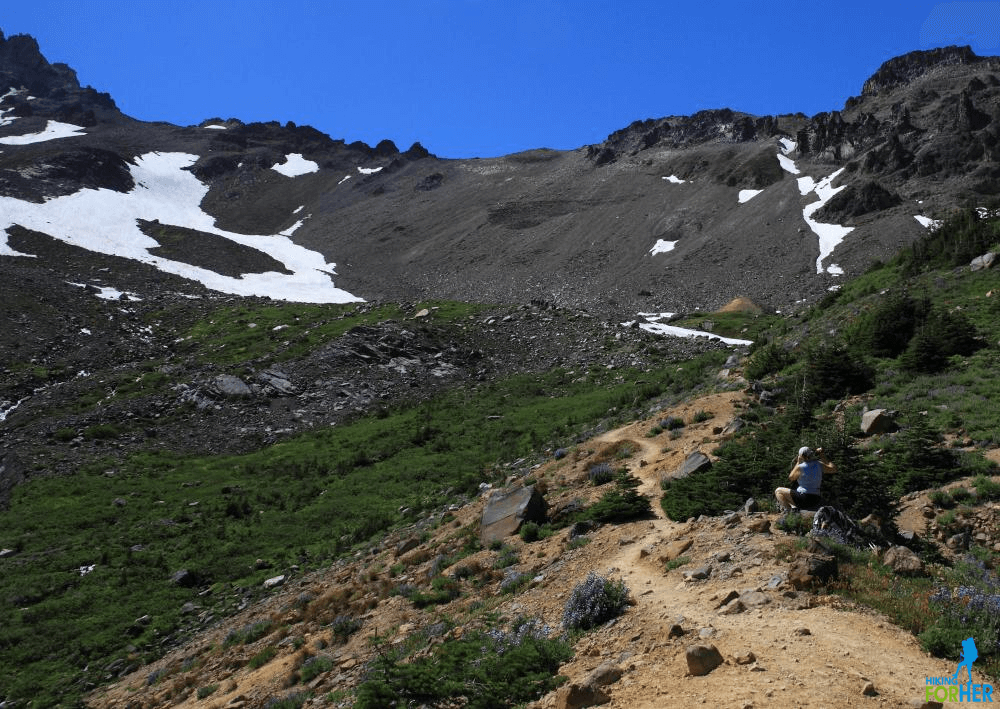 Being immersed in nature on a hiking trail opens up new realms for a hiker
Being immersed in nature on a hiking trail opens up new realms for a hiker
Benefits of hiking:
spiritual well being as a hiker
Define spiritual well being in whatever way works best for you.
It may or may not have an affiliation with a religious group or institution.
It may not have a sanctioned label or a definite word to describe how you feel within the space of your heart.
But however you self identify, know that spending time in nature, doing what you love with the wind in your hair and the sun (or rain) on your back is a perfect way to connect effortlessly with your Source of inspiration.
Walking as a spiritual adventure has a long history in human culture, as demonstrated by El Camino de Santiago pilgrimages which are popular with hikers.
- Read about these types of adventures in this National Geographic article.
- And then plan your own, perhaps a more scaled down version closer to home.
Trail tip:
You might like to bring along a book or piece of writing that inspires you on your next hike, and enjoy it whenever you hit a particularly beautiful or tranquil spot.
- Or a camera, sketch pad, journal, song or meditation practice - whatever lights you up inside.
Deep connection with the beauty that surrounds you restores a part of yourself that you might not have realized was depleted or wounded.
- All it takes is the desire to get still, get silent, and get centered.
Your trail journal is the perfect place to record what comes up next within you.
So let's sum it up with this Benefits Of Hiking
infographic
Ways to increase your benefits
from your hiking habit
You want to hang onto your hard won benefits of hiking in between hikes, right?
Here's how to make every hike count!
Avoid ruts
This is as true on the trail as off.
Avoid getting stuck in a rut due to habitual choices.
Instead, make a conscious decision to choose a variety of hikes that challenge you in terms of distance, elevation gain, or terrain.
Try winter hiking. Or snowshoeing.
How about night hiking?
Switch up your trail companions and hike with them for a fresh perspective on outdoor time:
Document everything
Write down and describe every hike you take.
- What gets tracked, gets attention, and you want to keep your attention squarely focused on retaining those hiking benefits!
Example: You'll realize when the hiking intervals are getting larger, even though you tell yourself that you hike "all the time".
Another example: Your past few hikes have been basically the same payoff in terms of physical benefits. Time for something a bit different!
In other words, when faced with the data, especially when it's in your own handwriting or on your phone, it's tough to avoid the reality that you're not using your benefits.
And thus, are in danger of losing them.
Enlarge your scope of physical activity
to hang onto the benefits of hiking
Don't lose the strength, stamina, endurance and all of the other benefits of hiking by using an occasional hike as your sole source of exercise.
Support your hiking habit with other types of movement, and enjoy the muscle power, mental focus and serenity on the trail no matter how long it's been since the last hike.
Work on keeping core strength with yoga, swimming, tai chi or step aerobics with abdominal focus.
Keep your flexibility with daily stretching and passive yoga poses (yin form, where you relax into a pose and hold it for several minutes).
Hang onto your stamina with training walks of variable distance on a variety of surfaces.
Try a brand new form of exercise, using a free or low cost class or online program, to work your core and keep your aerobic capacity strong.
Why?
Because it's demoralizing to start back at square one every time too much time elapses between hikes.
And a demoralized hiker is a sad hiker :(
How to keep your hiking motivation sky high
A fun way to keep your conscious mind engaged with improving your well being as a hiker is to keep a log of your hikes (see "document" above).
Start with the beginning of your hiking season, and keep recording your impressions through whatever date you hang up your boots for the year.
Or, as urged above, gather data year round with winter hiking and snowshoe adventures.
Trail tip:
- Use a portable trail journal to record date, distance, time, velocity, elevation changes, mood, physical challenges, day of the month, and trail food.
- Be sure to give yourself a smiley face when you achieve a personal best for that particular trail.
This approach keeps things private, where only you know that your legs felt like cement or you were sucking wind at the first hint of an elevation gain.
See the benefit of writing things down?
You'll see more gains than losses, perhaps even a surprising amount of them!
Ka ching!
- Motivation reinforcement at its finest in the wonderful Realm of Hiking.
Once you stop noticing benefits, you've hit a plateau.
- Time to change up your hiking routine and record how your body responds.
- See "hiking ruts" above for tips.
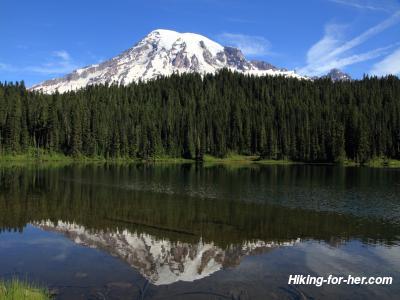
Unintended (but good)
consequences of a hiking habit
Not all of the benefits of hiking can be planned in advance.
The more you hike, the more you'll notice some changes in your lifestyle.
Your circle of friends might enlarge:
You might meet the love of your life, looking every bit as tired and bedraggled as you do, just around the next bend in the trail.
Your vocabulary will enlarge to make room for words like "electrolytes" and "base weight".
You'll find yourself shopping in a different section of your favorite hiking clothing store, due to your smaller waist size.
One day you'll look up and grin at the plethora of hiking maps pinned above your computer.
Ah, yes!
Let's go ahead and add these blessings of a rich and rewarding hiking life to the benefits list we compiled above.
If the boots fit, lace 'em up
and go for a hike!
It may appear that I'm bribing enticing you into life as a hiker by sharing all of these benefits of hiking.
True enough!
You have so much to gain, and with the trustworthy hiking tips on this website, you now have the knowledge to hit the trail in comfort and safety.
- Hiking For Her is devoted to sharing the benefits of hiking with you in as many ways as possible, so please take some time to explore using this site map.
Here's to your long life as a healthy hiker!
And to the buckets of benefits you've earned :)
Physical, Mental And Spiritiual Benefits Of Hiking
|
I get emails all the time about what I wear, eat, carry and love to use on the trail. That's
why I provide affiliate links to you: the best gear that I use myself and have seen used by other hikers is instantly
available for your consideration, and the gear company sends a few
pennies per dollar to this reader-supported hiking website. There is no added cost to you! Everyone ends up a winner: Great gear for you, strong gear companies, and more free hiking tips for everyone. Thanks very much for your support. It's warmly and sincerely appreciated. It also helps send these hiking tips to all your virtual trail buddies around the globe. |
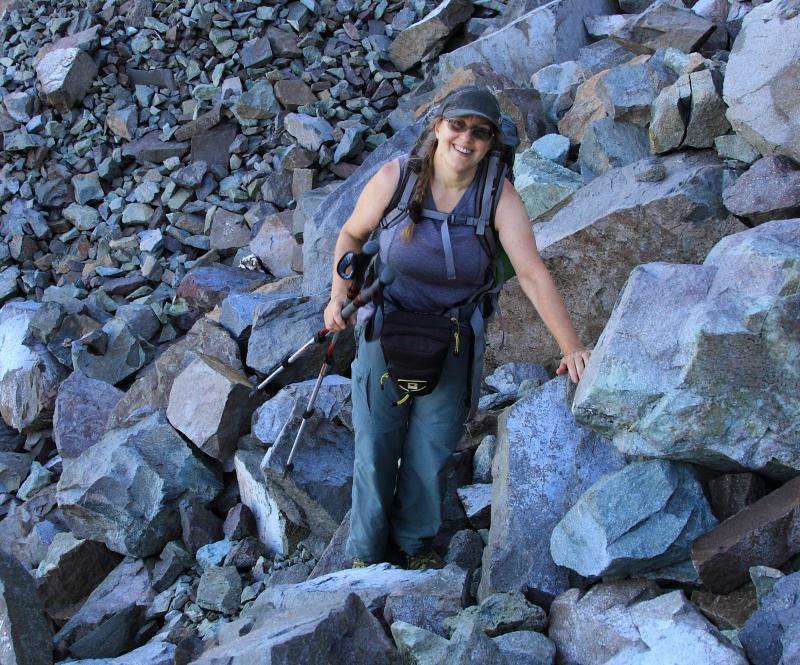 |
